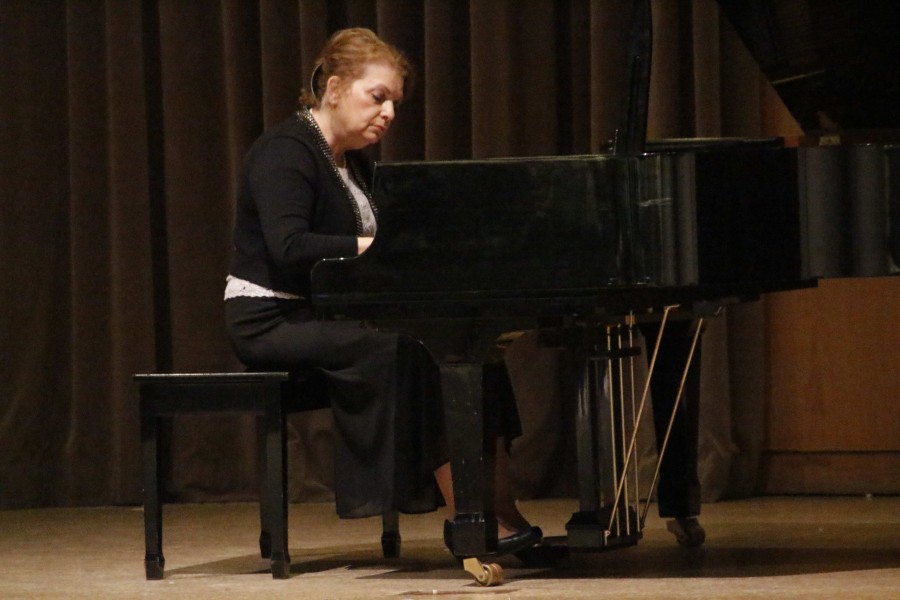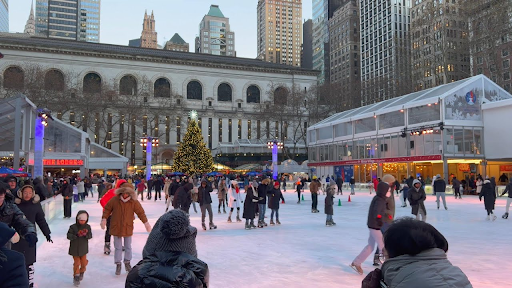The Marillac Auditorium at St. John’s University had people scattered all over the room. The auditorium is quiet and brightly lit, and the only thing heard is music from the piano. Sound fills the air.
Classical pianist and Professor Anne Tedesco sits with confidence at the piano as she keys songs from well-known pianists, such as Johann Sebastian Bach, Domenico Scarlatti, Claude Debussy, W.A. Mozart, Isaac Albeniz and Frederic Chopin.
Tedesco was able to change the mood of the room with each song played. Johann Sebastian Bach’s Prelude in D Major, the first song of the night, made the room come alive with its rhythm, followed by the smooth legato phrasings.
She went on to do many songs bringing the crowd through a variety of different themes.
“She plays ever so smoothly and eloquently, so much so that you can tell she’s definitely an expert pianist,” onlooker Iovannie Echavarria said. “I thought it was a nice show.”
This was Tedesco’s 21st time playing a solo in the university’s Marillac Auditorium, but she is no stranger to the piano or the stage.
She made her first debut in New York’s Carnegie Recital Hall. Tedesco has also been recognized in the New York Times for her skills and received many awards for both her playing and teaching.
On April 16, Tedesco performed her 21st solo piano concert in Marillac Auditorium. The event was a benefit concert. All proceeds went to the William B. Ronald’s Art Scholarship.
Professor William Ronald himself created the William B. Ronald’s Art Scholarship in the 1990s when he served as Chair for the Department of Fine Arts. The scholarship was first called “Art Students In Crisis.”
The scholarship was created for students who enrolled in the Bachelor of Fine Arts programs, but couldn’t afford it.
The program has managed to continue on for 20 years and has provided many opportunities for those students who are dedicated, but lack the funds.
At the end of the evening, the crowd clapped with delight. Tedesco’s friends, amongst other audience members, walked up to the stage with bouquets of roses and a bottle of wine.
Filled with joy from the response of the guests, Tedesco offered to play one last song for the crowd.
The song was a Frederic Chopin waltz in “A” minor. This song was a tranquil piece to end the night.
After concluding the hour-long solo concert, Tedesco said she felt “good.” After many weeks of long hours practicing and teaching, she had finally achieved what audience members described as an “amazing show.”














